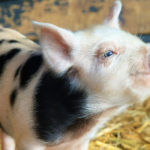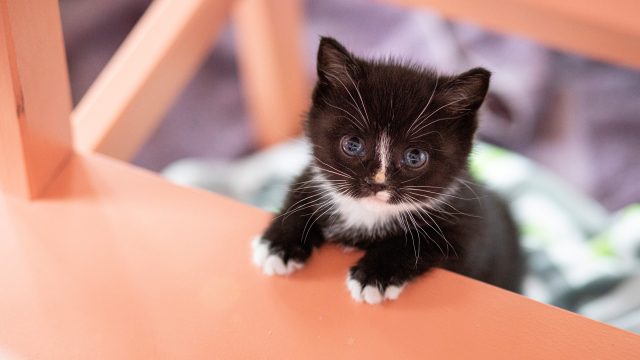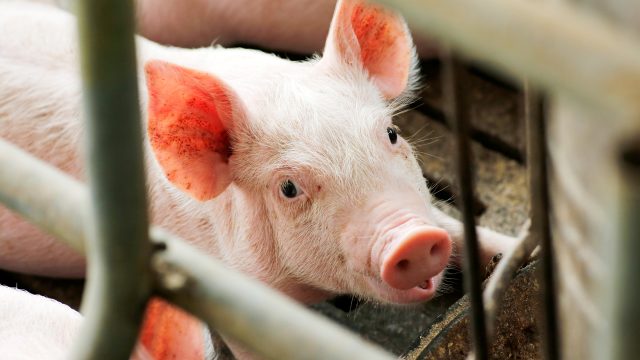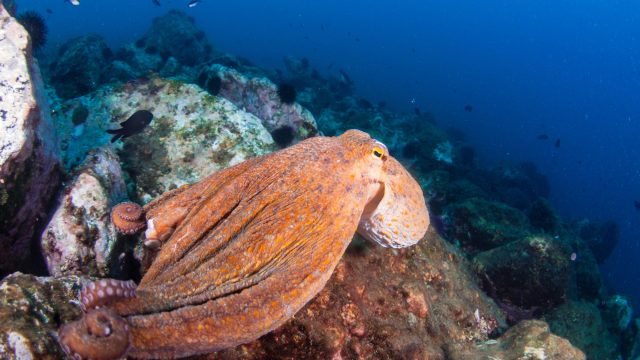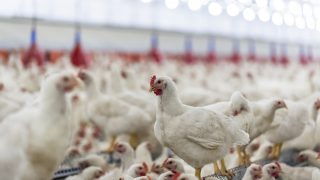
Lawsuit Alleges USDA Fails to Protect Consumers from Deceptive Chicken and Turkey Product Labeling
Animal Legal Defense Fund asserts USDA allows Perdue Farms and others to misleadingly represent factory farmed animals in pastoral imagery
Contact: media@aldf.org
SAN FRANCISCO — Today, the Animal Legal Defense Fund, the nation’s preeminent legal advocacy organization for animals, filed a lawsuit against the U.S. Department of Agriculture (USDA) for allowing producers to use deceptive imagery on poultry products. The lawsuit specifically identifies the USDA’s approval of Perdue Farms’ Fresh Line labels, which portray chickens and turkeys grazing outdoors in green grass under a bright sun, when in reality the birds used in these products spend their entire lives confined in warehouses on factory farms. The USDA is required by the Poultry Products Inspection Act to prevent the use in the marketplace of labels bearing false images that deceive consumers about the lives led by the animals raised for the products. Yet the agency turned a blind eye toward the misleading graphic imagery and approved Perdue’s false pastoral labels.
Consumer concerns over the treatment of animals in animal agriculture have steadily increased over time. A Technomic survey found 77 percent of consumers are concerned about the welfare of animals used for food. More than two-thirds of consumers pay some or a lot of attention to food labeling claims regarding how the animal is raised.
“The USDA has a legal responsibility to ensure animal product sellers are labeling their products accurately,” says Animal Legal Defense Fund Executive Director Stephen Wells. “Consumers are willing to pay more for higher standards of animal care—and companies like Perdue are taking unfair advantage of consumer sentiment by pushing a false narrative on their packaging.”
In a letter to the Animal Legal Defense Fund, a representative from the Food Safety and Inspection Service, a division of the USDA, asserted that the “photos, colors, and graphics used on packaging are not considered labeling claims.” This statement is in direct opposition to the definitions of “label” and “labeling” in the statutes, which specifically include “graphic matter.”
USDA’s decision to approve the labeling of Perdue’s Fresh Line products is one example that reveals the agency’s failure to consider graphics when reviewing and approving labels on poultry products. By approving Perdue’s Fresh Line labels without the review required by the Poultry Products Inspection Act, USDA not only ignores the law it’s charged with enforcing, but allows Perdue and similar companies to mislead consumers about the nature of the products they are buying, by hiding the inhumane conditions endured by the animals raised for the products.
Companies making deceptive claims about their products are engaging in “humane-washing”— making a misleading claim about the treatment of animals or the conditions in which they are born, raised, or killed. Humane-washing efforts can range from using claims like “natural” or “responsibly raised” on labels or in marketing, to the imagery on product labels or in video advertisements showing animals in picturesque green pastures when they are actually warehoused in crowded sheds. Companies may engage in humane-washing through multimillion dollar, multi-platform marketing campaigns misrepresenting products from animals raised on large factory farms as “local” food coming from “family farms.”
Sign Up!
Join the Animal Legal Defense Fund's email list to stay up to date on lawsuits, legislation, and regulations affecting animals.
Focus Area
How We Work
Related
-
Rhode Island Governor Signs Cat Declaw Ban into Law
Declawing is an invasive surgical procedure to remove the last bone in a cat's toesJuly 2, 2025 News -
U.S. Supreme Court Declines Review of California’s Landmark Proposition 12 Animal Cruelty Law
The Animal Legal Defense Fund helps protect the strongest farmed animal protection law in the countryJuly 2, 2025 News -
OCTOPUS Act Reintroduced in the U.S. Senate
The federal bill would prevent the industry from gaining traction by banning commercial octopus farming in the U.S.June 5, 2025 Press Release

